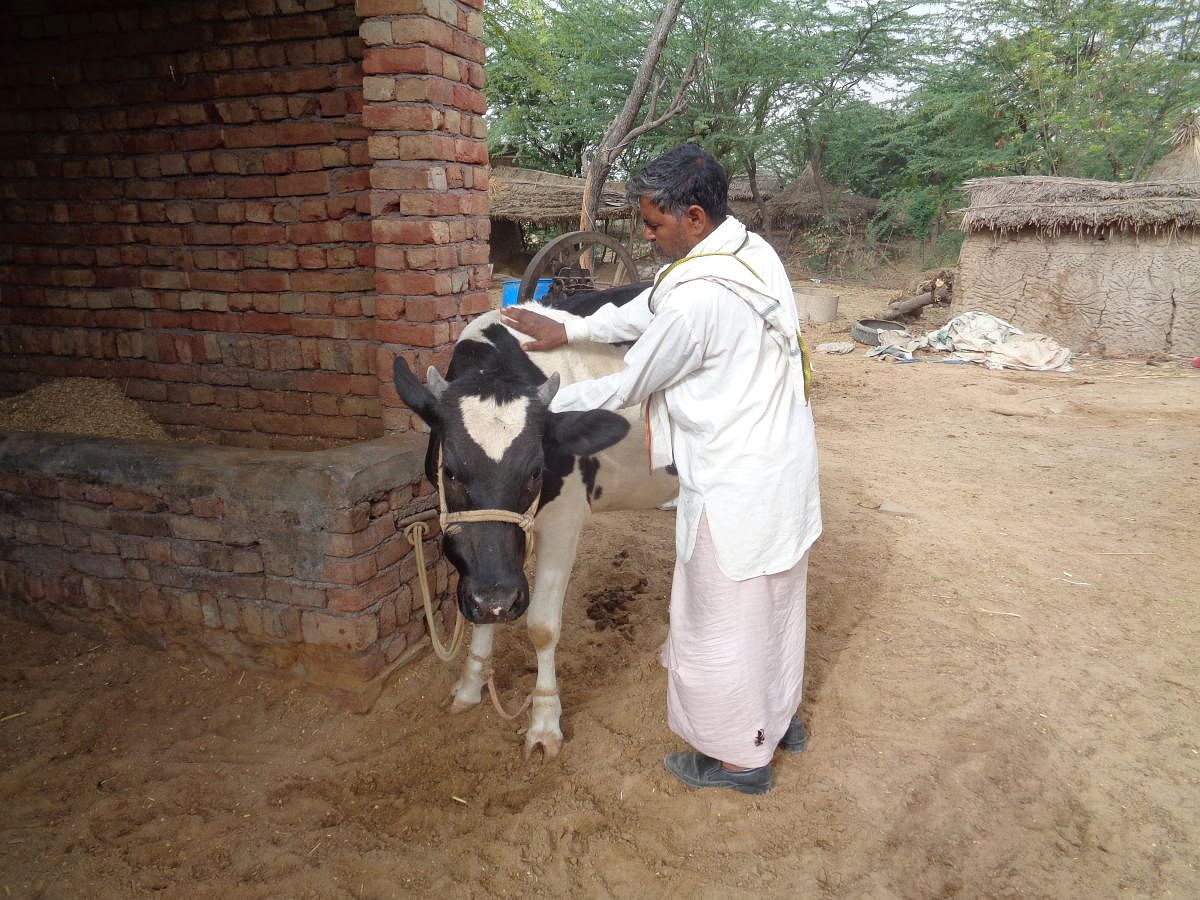
While travelling on the Bharatpur-Alwar highway in Mewat region, one comes across pickups carrying cattle, sharp-featured Meo men on roadside shops selling spare parts of cars, farmers herding sheep and hazel-eyed women busy in the fields. Picturesque countryside dotted with green field, square mosques in every two kilometre distance and sizeable shops of car parts are the common scenes in the region. But with the rise in lynching incidents, dairy farming, one of the primary occupations of this region, has dropped by 30%.
Families live in a mix of kutcha-pucca houses in these villages and each household has two to four cows or buffaloes. Issues like education, health services, clean drinking water and drainage system require redressal in these villages. While dairy farming is the mainstay, villagers also grow crops like onion, bajra, mustard and pulses. With lynching happening, prospects of dairy farming are at stake.
“People in Mewat are rearing cows traditionally but from the last one year, this occupation has seen a drop. Earlier, I used to collect around 350 litres of cow milk and 1,200 litres of buffalo milk every day from the villagers. But now, the quantity has reduced to 125 litres of cow milk and 700 litres of buffalo milk,” Abdul Qayoom, a dairy owner operating at Jaisingpur village of Nuh shared with DH.
“Earlier, people of our village used to rear cows. But after Pehlu Khan’s lynching followed by other killings in this area, villagers have stopped buying cows. We used to buy cows from nearby villages of Haryana but now we are scared of transporting cattle,” he added. Abdul purchases one litre of cow milk at Rs 25 and buffalo milk at Rs 30. Besides cows and buffaloes, most of the households also rear goats, the milk of which is used for household consumption.
The dip in the dairy business has also made many jobless, while some are trying their hands at other jobs. “Earlier, we used to have four cows but now the number has reduced to one. So, I am forced to switch to driving,” Ajmal Khan, a resident of Ghatmika village, said.
Due to the scare, the villagers are now apprehensive about taking cows out for grazing. Instead, they buy fodder and feed the cows in the shed itself. Akbar Khan’s father, Sulaiman, explains the economics of dairy farming, “A milch buffalo is priced at Rs 1-1.5 lakh while a cow can be bought for anywhere between Rs 40,000 and Rs 50,000. The cost of rearing a cow is less when compared to a buffalo which is why we preferred cows. But now their maintenance is expensive because villagers have stopped to take the cows to graze on the hillside or in the fields.”